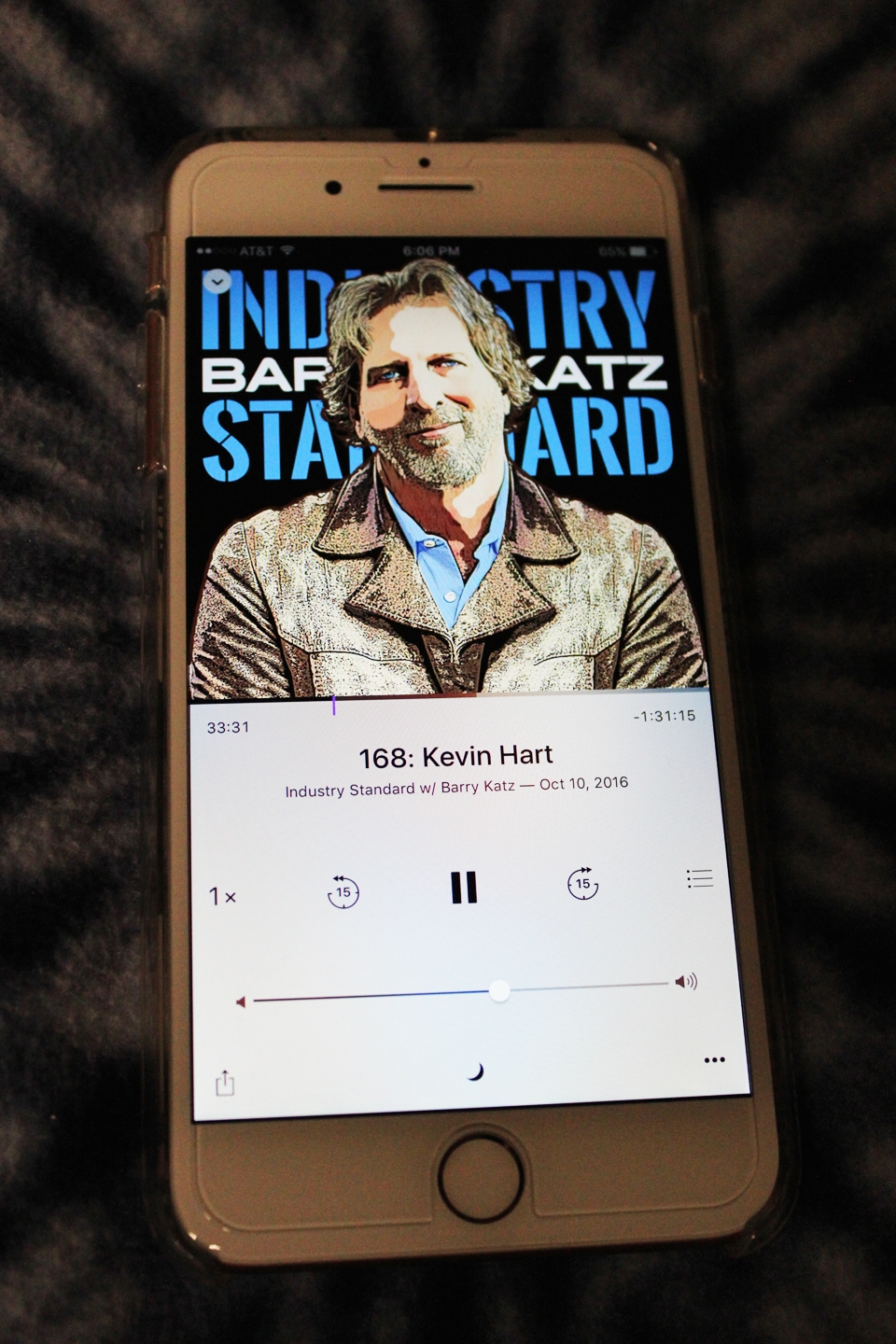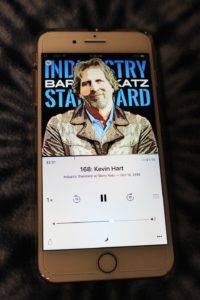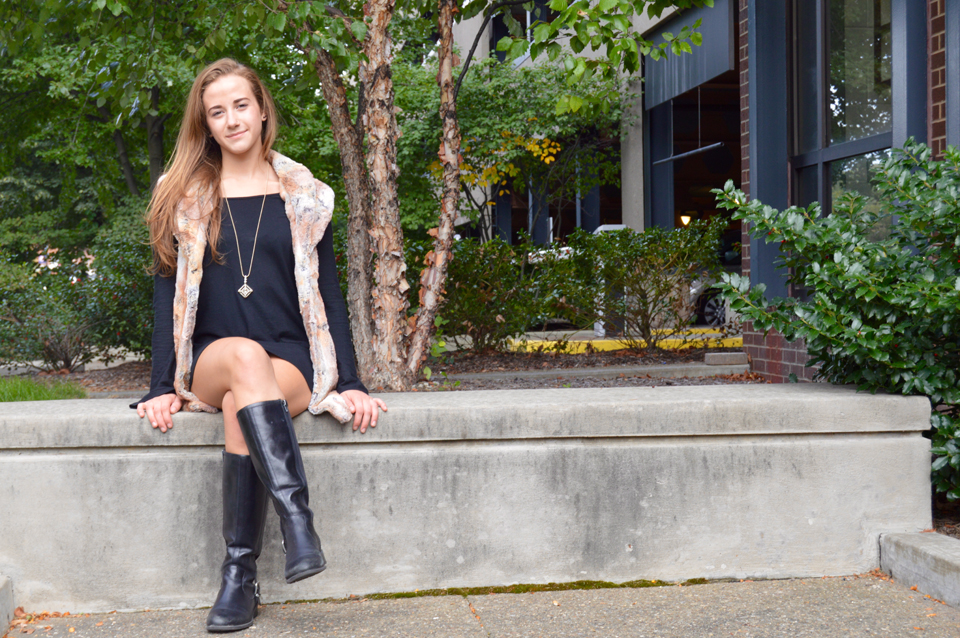

Apple’s “Podcasts” app is a popular way to listen to shows.
By Elsa Buehler | Staff Writer
In a time where entertainment of all kinds is so easily and instantly ingestible, it’s interesting that podcasts are making a comeback.
Podcasts are a sort of audio show that users can subscribe to, typically as a series. Covering a wide variety of topics and interests, podcasts are just as versatile as YouTube channels, with more of a radio feel.
What’s fascinating, though, is the fact that podcast listening has experienced a very recent surge in popularity. Convince & Convert, a marketing team of “senior digital strategists,” reported that podcast listening has grown 23 percent from 2015 to 2016.
According to Jon Nastor of Copyblogger, a content marketing blog, podcasts typically last an average of 22 minutes. Today, entertainment can be consumed so quickly — think Snapchat, Vine, Twitter, YouTube, etc. There must be something that sets podcasts apart. But what is it?
Chris Daley — a journalism and multimedia arts professor at Duquesne and an purveyor of podcasts — has a few ideas.
Daley believes the revival of podcast listening can be partly attributed to the rise of mobile device usage. The portability of podcasts through smartphones and other devices makes them ideal for busy students and commuters to access on their way to class.
“The mere functionality of opening an audio content but not needing to have your screen open makes it better suited for multitasking and picking up where you left off,” Daley said.
Another theory of Daley’s is that podcasts have become more popular because the tools needed to create them are more accessible. Basically, even though the most successful podcasts require professional software and a team of specialists, the average person has access to some kind of program that could allow them to create and publish their own podcast.
“[This means] that more people are telling their stories,” Daley said. “More stories leads to greater potential to stumble upon a podcast that resonates.”
As for the content, Daley admires the “element of authenticity” associated with podcasts and believes the techniques that are distinct to audio-only media help capture the interest and attention of the listener.
Robert Healy, a Duquesne professor of journalism and multimedia arts, also offered his thoughts on why more people are tuning in to podcasts.
Healy theorizes that the rise in popularity isn’t because of a change in the actual content. Rather, media convergence has given way to what he calls “omnipresent technology,” smartphones that are more convenient and functional than ever before.
Enjoying podcasts is all about the availability and these mobile devices allow people who are interested in longer forms of media to access podcasts easily.
“In any generation there always are people who are more attracted to things that take a little bit more time to read and understand — people who are readers as opposed to observers,” Healy said.
According to Healy, among the college crowd, podcasts probably have more of an appeal to those walking or commuting to class, being that podcasts are audio-only and don’t require all aspects of your attention, which allows for multitasking.
Healy is a podcast listener himself and recommends comedian Marc Maron’s podcast, “WTF.”
Duquesne professors aren’t the only ones who listen to podcasts. Students are tuning in, as well.
John Mauro Gloninger, a freshman environmental science major, has been listening to the Roman Mars’ podcast “99% Invisible” for roughly three years. Each episode of the podcast features some phenomenon that almost everyone has heard of yet knows little about, as the title suggests.
Some of his favorite episodes covered topics such as flags, famous music albums, instant food and the concept of “average.”
“I usually listen when I want to decompress,” Gloninger said. “Maybe while eating a snack during a break from studying, that way my brain doesn’t completely shut off. The show gives me a lot to talk about and reference in school papers.”
Bradley Bieski, a freshman nursing major, only started to listen to podcasts around two months ago, thanks to a recommendation from a friend. Bieski’s podcast of choice is called “The Joe Rogan Experience” which discusses anything from the UFC fights that he commentates to the unknown phenomena of the universe to politics.
Iconic guests of the show have included astrophysicist Neil deGrasse Tyson, UFC fighter Ronda Rousey, rapper Action Bronson and Instagram celebrity Dan Bilzerian.
“It’s thought-provoking material that you don’t get to hear in everyday dialogue,” Bieski said.
The “Podcasts” app that comes built into every iPhone ensures that access to tons of free podcast subscriptions is easier than ever before, which means your daily treks to class could get a little more interesting.




